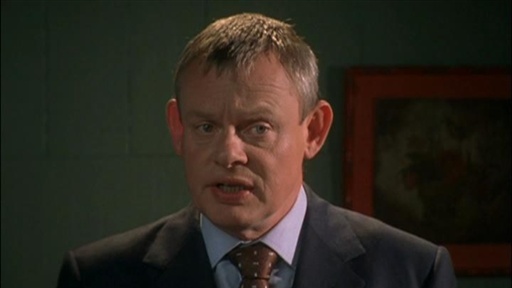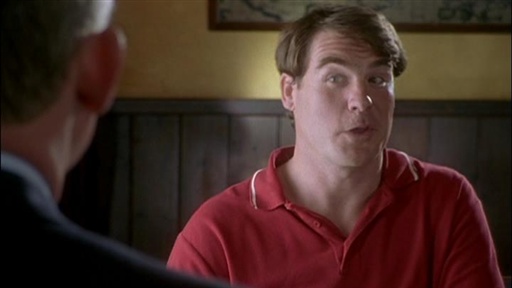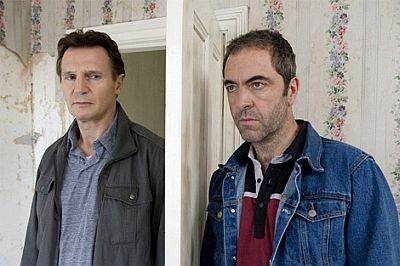
"Don't be afraid. Out there you can kick up the dust. You can dance to fiddle music. Watch the alfalfa grow. If you like you can see gold teeth, taste sweet whiskey and red-eye gravy. The air breathes easy. Nights go faster. You can tell time with a clock. You don't want to be a jailbird all your life, do ya? You're a high-ballin' sparrow."
I had a hankering to watch this film after visiting Alcatraz last weekend, though I knew full well that films located on Alcatraz rarely use more than peripheral shots of the facility. To make matters worse, Robert Stroud, the real-life inmate of Alcatraz upon which this plot is based, was actually only a "Birdman" of Leavenworth Penitentiary, where he kept canaries until changed legislation drove him down a path that eventually led him to Alcatraz. Despite this, and the tremendous challenge of filming a piece extensively within the confines of a single cell, Burt Lancaster provides all the gravitas needed to make this film thrive. In relating the tale of a jaded man imprisoned for murder, committed to solitary for life after killing a prison guard, and transformed into a renowned researcher of bird pathologies through his painstakingly developed avian companionship, what Birdman of Alcatraz really does is set a standard for calm and deliberate pacing in theatre. Some might argue this pacing is too calm and deliberate, with the film clocking in at 147 minutes and covering surprisingly diverse territory. Nonetheless, though the premise might seem too clear-cut to merit a viewing for today's all-knowing set, and like most biopics this piece twists its fair share of facts, this classic--and both the prison and man it represents--has a humanity to it that still deserves the continued interest of audiences today.
#23. The People vs. Larry Flynt

I confess to deriving a measure of sick pleasure from seeing Courtney Love play dead in this biopic about Larry Flynt (Woody Harrelson), arguably the most important "smut-peddler" alive today. But beyond that moment's delight there lies a surprisingly measured piece about a a couple shocking elements of human life: differing perceptions of obscenity, and the lengths some of us go to in order to defend or destroy other people's ability to express those differences of opinion. Some decent monologues about freedom of speech are interwoven in this fairly strict accounting of the various highs and lows of Larry Flynt's career as the head of Larry Flynt Publications and creator of Hustler magazine, which caught the ire of religious groups, white supremacists (including the one considered responsible for the failed assassination attempt that left him paralysed from the waist down), and another monolithic personality (Jerry Falwell) who became instrumental in Flynt's real claim to judicial fame, a landmark appeals case before the U.S. Supreme Court. If the film is to be faulted for anything, it's likely the one-sided nature of each court case presented to viewers; I expect this was a choice made for economy, but it nonetheless has the consequence of relaying each case's outcome to the viewer with little anticipation. Otherwise, though, biopics are regularly faulted for taking extreme liberties with original story lines: this one, however, does a surprisingly even-handed job. Not a shocker of a film, but certainly a more than adequate testament to an important contemporary defense of civil liberties.
#24. Doc Martin, Season 1

Someone recommended this series to me on the strength of it being "like House," and I wish that person had allowed the series to rest on its own merits: a) because it's nothing like House, and b) because it's excellent in its own right. A quiet British comedy about a London surgeon (played by Martin Clunes) who becomes GP to a small coastal town after struck mid-operation by a fear of blood, Doc Martin, the modest series pits the good doctor's blunt, prescriptive mannerisms against the foibles and niceties of small town living. In this first season, involving a passive love interest in the schoolteacher, a rekindled familial relationship with his aunt, the antics of his incorrigible local receptionist, the peculiar nature of his most far-out patients, and a stray dog who follows him incessantly, viewers are introduced to other central figures in town life, including a plumber, his son, the local radio host, and the local policeman. Slapstick humour and social disconnects make for an altogether gentle comedy in this six episode season, while an overarching thread about trust and community insinuates itself more markedly as word of the doctor's hemophobia gets out.
#25. Doc Martin, Season 2

With all the pertinent character introductions out of the way, season two develops Doc Martin's feelings for school-teacher Louisa, switches out one quirky receptionist for another, and sees the rise of secondary plot-lines through the abrupt romance between the town's policeman and a mysterious new woman, as well as continued familial interplay between the plumber and his son. At the fore of each episode is still a clash of big-city pragmatism and stubborn "hickism" when it comes to Doc Martin's medical practice, but interestingly it's the secondary characters who dominate the developmental arc in this eight-part season (with a Christmas special to boot). The series maintains its leisurely pace, but definitely defines itself quite loosely with regard to how often we're likely to see different characters slip into and out of regular proceedings. One can never quite tell what each new episode will yield for precisely this reason--and that's potentially part of the series' charm.
#26. Doc Martin, Season 3

Season three brings the curious love story between Doc Martin and Louisa to the fore, and in such a way that should make most shows centred around difficult romances sit up and take notice. Despite the brevity of each season (this one has only eight episodes), the show commands a considerable writing team, so one is left to wonder whether the haste with which certain story lines are introduced and wrapped up is a part of this series' natural order, or simply the natural consequence of too many chefs in the kitchen. Also central to this season is the plumber's new-found vocation and on-going romantic tensions between his son and Doc Martin's receptionist. The same even keel throughout this series makes up for the rather fluid integration and absence of notable characters from seasons' past, but what with the rapidity by which major plots are tackled and done away with, I have to hope the series aims to end tidily and swiftly before losing steam.
#27. Hunger

It's amazing what some actors will do for their roles, and Michael Fassbender is no exception. For the role of Bobby Sands, leader of the 1981 IRA Hunger Strike who died of starvation in protest of Northern Ireland's refusal to classify certain prisoners as political (with all the added rights therein), Fassbender embarked on an extreme, though strictly-monitored, diet (results seen above). Fassbender's commitment to this performance is matched only by some of the most powerful directorial choices (care of Steve McQueen) I have ever seen incorporated into a piece about life in prison: the first half of this film is an exceptionally visual masterpiece, conveying worlds of nuance and character investment in the minutest acts. Through these striking images and pristine uses of sound and silence, one sees quite clearly all the players involved in the intolerable situation created within the prison, and furthermore the impossibility of protest -- even in "passive" forms such as the hunger strike -- escaping violent outcomes. Even just for the imagery in the first half of this film, Hunger is worth the time of anyone who seeks a prison piece that balances monotony with fear, brutality, and the overarching question of human dignity.
#28. Shutter Island

I confess that this film's trailer turned me right off the piece for months: as much as I know Martin Scorsese to be an excellent director something really has to be done about the piss-poor state of contemporary movie trailers, because if they're not spoiling the whole movie plot or blowing all its choicest lines at one go, they're sensationalizing even pointedly nuanced atmospheres to deceptively superficial ends. In this case, as if Scorsese's name wasn't audience-grab enough, producers decided to slap together a conspicuously generic thriller trailer for a work that is in actuality anything but. I watched this film despite its horrendous marketing campaign because I was curious about what Scorsese would do with the genre (as it is his wont to toy with conventions in pretty much any genre he touches), and despite Leonardo DiCaprio falling back on a rather tired accent for his role as the protagonist, detective Teddy Daniels, I was exceedingly impressed with the way Scorsese teased out the conventions of the modern thriller to elicit fresh and thought-provoking truths. In post-WWII America, Teddy is seeking the truth about an island mental health facility for the criminally insane, where he suspects the patients are being experimented on by the government in ways that gravely distort his nation's recent struggle against the threat of Nazism. His own experience of freeing a death camp from Nazi rule, coupled with crippling grief over his wife's violent death in post-war years, invite the viewer to reassess what is meant by social determinations of "mentally healthy" and "mentally unfit." While Scorsese emphasizes the complexity of this argument, usually so starkly and divisively drawn in mainstream thrillers, he also combats a very common plot twist in an altogether unique way. Viewers with any background in the genre will see the central twist coming a mile away, but should likely be surprised by the length at which it's drawn out, and the exceptionally subtle redemptive line at its close, which single-handedly raises Shutter Island into a very different calibre of film. In the end, genre be damned: this is Scorsese picture, through and through.
#29. Five Minutes of Heaven

I want so much to see Liam Neeson take on a happy role, after losing his wife last year in a freak skiing accident, but for now I gain a distinct measure of comfort from seeing him so secure in his archetypal niche, as a man of great and deliberate thought and action. Whether someone's just kidnapped his daughter or someone needs help coming to terms with their perceived sexual peccadillos, Neeson commands considerable gravitas with a simple waggle of his jaw, the clenching of his teeth, and the searching weight of his ancient gaze. So it is with his role as Alistair Little in Five Minutes of Heaven, a man transformed by twenty-five years in prison following a childhood in Ireland that seemed to propel him inevitably towards committing murder in the name of loyalist paramilitary group in Northern Ireland (the UVF). While Alistair's transformation and activist work after the murder gave him world renown and wide praise, the younger brother of his victim, Joe Griffen (James Nesbitt), grew up being blamed by his mother for his older brother's death. The cruelty of this accusation being almost worse than the loss of his brother to randomized patterns of nationalistic violence, it's no surprise that Joe perceives a TV-show-sponsored opportunity for reunion between victim and murder as a chance to settle the score (thus yielding him his "Five Minutes of Heaven" before arrest or death). Beautiful visual resonances between both histories of violence emerge in the first half of this piece (by director Oliver Hirschbiegel and writer Guy Hibbert), along with some exceedingly tense set-up as Joe struggles just to enter the room where Alistair waits, surrounded by cameras, for their reunion; and in these moments we can especially see a side of Alistair that defies his apparent worldly success--a loneliness and heart-rending guilt that has as surely stopped his life after the incident just as Joe's mother's words stopped his own. These men are both exceedingly wounded creatures, so when a surprising twist halfway through the film casts the tempo and pacing in a completely new direction, the fear becomes that both will limp through the script to an artificial and saccharine ending. Frankly, I feel the film would have done well to end on one image hailing the stunning penultimate shot of The Passenger, but the piece still has a few quality scenes, and raises a few pertinent questions about violence and redemption, that make it worth the viewing.
No comments:
Post a Comment